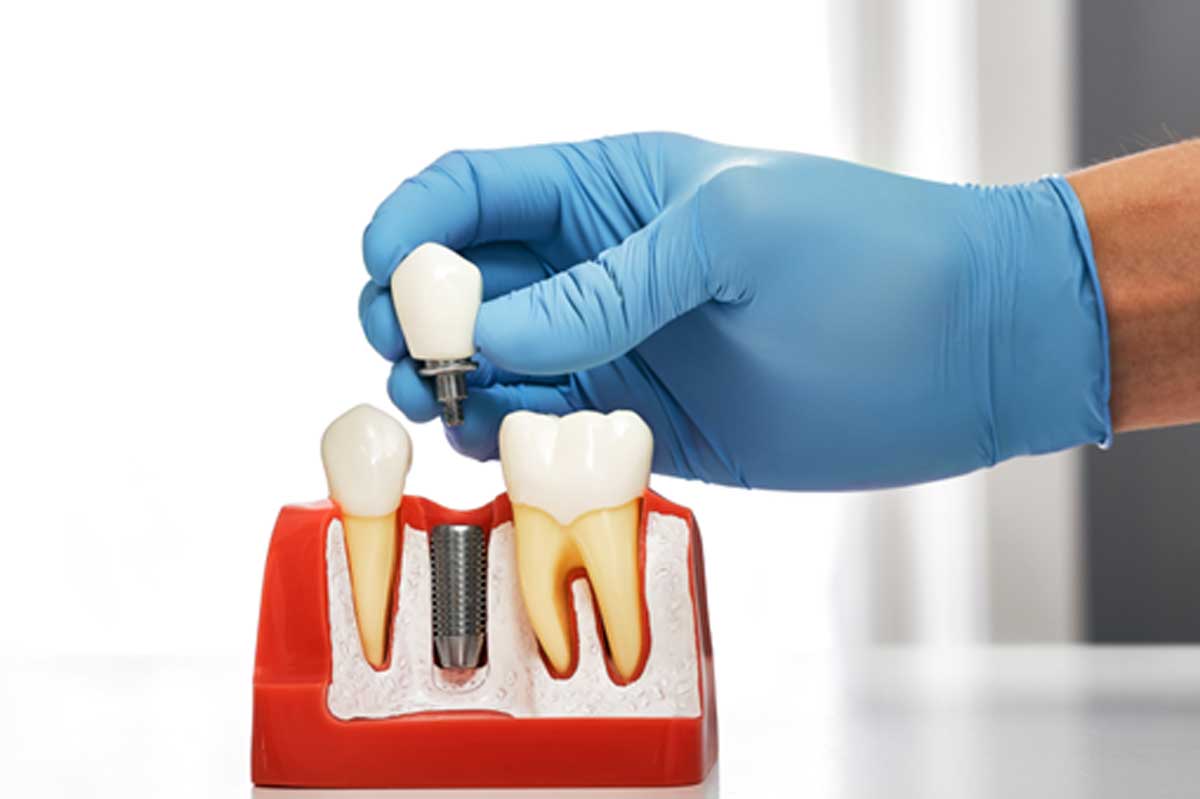Dental implants are a popular solution for replacing a missing tooth or teeth. Though they are one of the more invasive dental treatments available, thanks to ever improving technology, partial and full dental implants can now be achieved in a much shorter space of time with far less discomfort. If a missing tooth or teeth are preventing you from showing off your smile, or speaking in public, then dental implants may be the perfect solution. Please read on to find out more about the science behind dental implants, how they work, how long they last and why they’re effective.
How do dental implants work?
Dental implants are artificial tooth roots that provide a permanent base for fixed or removable replacement teeth. They are composed of titanium and other materials that are compatible with the human body. The implant is surgically placed into the jawbone and allowed to fuse with the bone over a period of several months. Once the implant has fused with the bone, a crown or bridge is placed on top of the implant to replace the missing tooth or teeth.
Dental implants work by mimicking the structure and function of natural teeth. They help to maintain the integrity of the jawbone and prevent it from deteriorating. Unlike dentures and bridges, which can cause discomfort and require frequent adjustments, dental implants are a permanent solution that can last a lifetime with proper care. They also allow you to eat, speak, and smile with confidence, improving your overall quality of life. If you’re considering dental implants, book a consultation with us today to determine if they are right for you.
How long do dental implants last?
Global data has shown that dental implants have a 90 - 95% success rate for a period of at least 10 years, but in reality they can last a lot longer. With the proper care and a good oral health routine, there is no reason why your dental implants can’t last for 20 - 30 years.
The lifespan of dental implants can be reduced due to factors such as poor oral hygiene and maintenance or underlying health conditions. To ensure the longevity of your dental implants, it is crucial to follow the advice we give you post-procedure, practise good oral hygiene, and attend regular dental check ups.
Why are dental implants effective?
Dental implants are an effective solution for missing teeth as they provide a permanent and natural-looking replacement. Unlike dentures, implants are fused to the jawbone, which helps to stimulate bone growth and prevent further bone loss. This makes them a more stable and secure option, allowing patients to eat and speak with confidence. Additionally, implants do not require any special care or maintenance beyond regular brushing and flossing. With proper care, partial or full dental implants can last a lifetime, making them a highly durable and cost-effective solution in the long run.
Find out more about dental implants
At Marsh House Specialist Dentists, we prioritise your oral care and employ the Straumann® implant system which is recognised globally for delivering exceptional results in dental implant treatments. To find out more about how this system works, what to expect and the benefits of getting dental implants please get in touch with us on 020 8646 6200 or click here to send us a message and we’ll get back to you as soon as we can.






